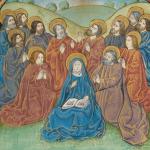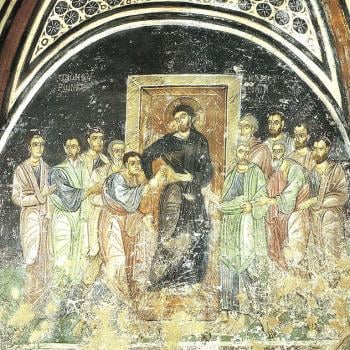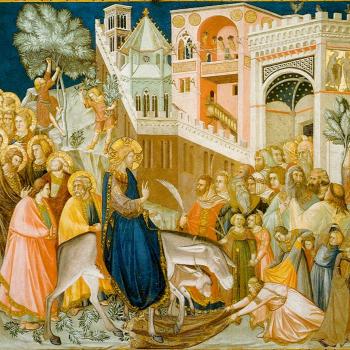
Our family heritage is important. Who we are, at least in part, comes from those who came before us, from our ancestors. We are their heirs. We inherit their legacy, both the good and the bad, and with it, the responsibility which comes from that legacy. Our ancestors are important to us. We cannot cut our ties from them. Even if we are not proud of all the things which they did, we should honor them for the good which was in them, the good which was also passed down to us, for that good is what allows us to examine them with a critical eye and see what they did wrong. Since what we have comes from them, we cannot run away from the fact that we should right their wrongs. We might not be able to do so perfectly, but we must do what we can, the best we can, to fix the mistakes of the past, to make sure the sins of the past do not continue to be repeated today. When we do this, we honor our heritage, we honor our ancestors, for by doing good, by healing what they harmed, we help our ancestors just as much, if not more, than if we prayed for them. By undoing the wrongs which they have caused, by overcoming the systematic evil which they left behind, we not only free the present generation from that evil, but also our ancestors from the burdens which their sins established in them.
It is in this light that we can also understand the value and importance of the ancestors of Jesus. For, as a man, he inherited a great legacy, one which is filled with many great men and women, and the graces which they acquired throughout their lives, but also one which ties him with the rest of humanity, for humanity forms one great extended family. All humanity is related to each other, and so through his own human family, Jesus is related to us; in the incarnation, he not only finds his place within a great family, but he finds himself with a responsibility to take care of that family, to right all the wrongs which had been or will be done in and through it. While his immediate family line was filled with great women and men of faith, women and men filled with love and devotion for God, they were also quite fallible, and despite their greatness, they also did many things which they should not have done. Their great faith was loved by God, but their failures were not and those failures led to all kinds of injustices in the world, injustices which Jesus, as their heir, had to fix. Certainly, Jesus was not guilty of those shins himself, but he willingly took on the human condition and with it, the consequences of the sins of the past, indeed, the sins of the world upon himself. In doing so, he fulfilled the expectations of the law, for by fixing all the harm which sin has done to the world, he honored his father and mother, all his ancestors, and indeed, all of his human family.
The genealogies of Jesus in Scripture serve many purposes, among which, they pointed out that he was connected with the legacy of David so that in the flesh, he could be David’s heir, something which the messiah was expected to be. They also are help make sure that we understand that in the incarnation, Jesus truly was human, that in assuming humanity, the Logos was brought into a real family with its own particular heritage; Jesus was not some phantom being who one day appeared on the world and then on another day left it behind as if he had never been on it. Jesus truly was human, tied with the rest of humanity through his extended family. Matthew focused on the messianic legacy in his genealogy, taking his family line all the way back to Abraham: “The book of the genealogy of Jesus Christ, the son of David, the son of Abraham” (Matt. 1:1 RSV). For Matthew, the special calling of the children of Abraham, the calling of Israel, is fulfilled in Jesus. Luke, on the other hand, Luke went further and pointed to our common relationship with Jesus by showing his descent from Adam, that is, from the pre-historical foundations of humanity (cf. Lk. 3:38).
In Jesus’ family line we are shown great figures, the ancestors of Christ who we honor, not only because they are ancestors of Christ, but because of the good and remarkable things they did themselves. They were remarkable men and women of great faith whose lives, at least as we remember them, give us examples of how we too should live. And yet, as the writer of the Hebrews indicated, all that they have done, while good, is incomplete without the whole community of faith, the community of the saved. “And all these, though well attested by their faith, did not receive what was promised, since God had foreseen something better for us, that apart from us they should not be made perfect” (Heb. 11:39-40 RSV). Salvation and the glorification which comes after it is not a solitary thing. We are saved as a family. We are glorified as a family. We are in this together and it is only when we come together and find ourselves united together under Jesus will we find ourselves made perfect. Just as we are to honor our families, our ancestors, so Jesus honors his whole human family, showing us that we will not be perfect without him and the community of the faith which is established in and through him.
Jesus came into the world to complete what was started before him, to complete the works of God in the world, fulfilling all that was expected of him, including the expectation to take care of and work for and promote the welfare of his whole family. We are in this together. We are a large extended family, and we should reconcile with each other because of it. Jesus makes it possible. We must have faith and incorporate the work of Jesus in our lives so that we continue to bring the presence of Jesus in the world, continuing his work of such universal reconciliation. We are to start, of course, with our immediate family and the legacy which we have inherited. We are to honor our family, our ancestors, by overturning the sins and mistakes found in our immediate family heritage. Then, with the grace given to us, we are to do what we can to help make sure everyone finds a way to reconcile with each other so that we can truly come together as one large family and find ourselves in the larger, even greater family, the family of God. Then, as we find ourselves made one in Jesus, will become what we were always meant to be, co-heirs of the kingdom of God.
Stay in touch! Like A Little Bit of Nothing on Facebook.
If you liked what you read, please consider sharing it with your friends and family!

















